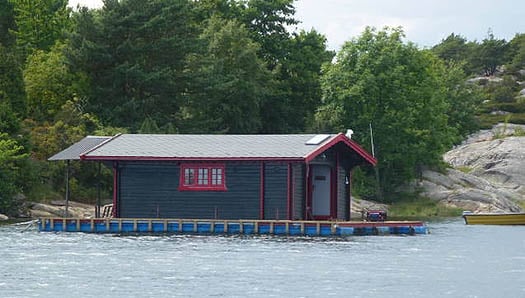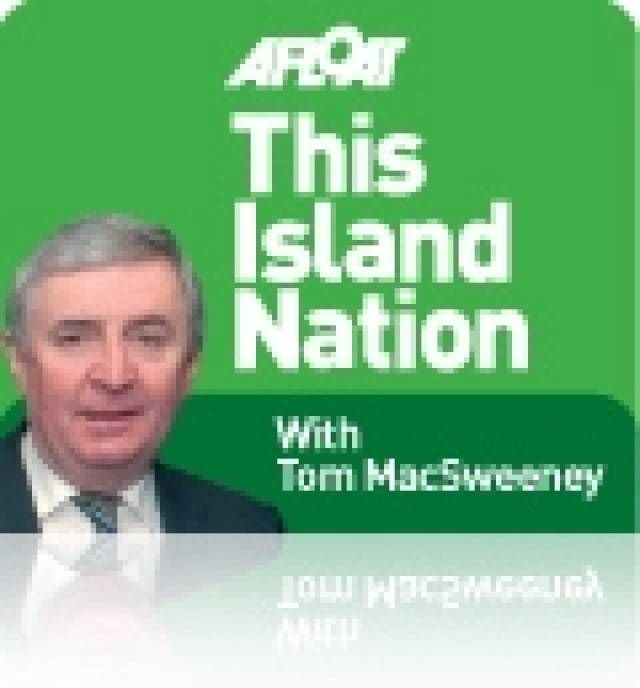#islandnation – In THIS ISLAND NATION this week .. How Norway preserves, protects and respects maritime tradition and its marine industries
STAYING OUT OF THE EU WAS THE BEST DECISION
I am in Norway this week where I have been looking at Europe's most diversified maritime nation. One of the most regular comments I have heard is that the country's best decision was to stay out of the European Union and maintain control over its own marine resources, from shipping to oil to fishing.
And of course they are of the Viking tradition and Ireland was well-known to those Vikings as a destination in past historic times when they raided our shores! Nowadays there is a growing Irish presence in Norway and even a GAA presence in Oslo.
Norway's overall maritime economy – an expanding cluster of industries linked to shipping, offshore oil and gas and the fishing and aquaculture industry encompasses a wide variety of products and services. It has gained worldwide respect for its shipping expertise, equipment and ability to exploit new market niches.
There is also huge respect for its maritime history, with the traditions maintained and achievements of individuals honoured presented in museums which are located at many places around the country. The shipbuilding industry comprises internationally competitive, technically-advanced small and medium-sized shipyards, focussing on ship repair and the construction of specialised vessels including ro-ros, chemical tankers, advanced fishing vessels, reefers, offshore supply ships, high-speed catamarans, cable-laying ships and seismic exploration vessels.

The latest thing in Norway, floating cabins that can be towed around
While Irish government Ministers defend what have been challenged by trade unions and other commentators as terms which favour exploration companies making finds in Irish waters to the disadvantage of the Irish people, revenues from Norwegian oil and gas activity are, amongst other benefits in taxation derived for the nation's economy, invested in a government pension fund, so that the country's petroleum wealth will benefit future generations. This fund makes long-term investments throughout the world. Called the "oil fund" its operations are well-known to the general public. "Openness and ethical considerations are cornerstones in the fund's investment strategy," government sources told me:
"Only the yield is used. The State is not allowed to use more of the oil revenues than the fund's anticipated real rate of return over time. As a result, short-term changes in oil and gas prices have little impact on budget policy."
SAILING IS BEAUTIFUL BUT DIFFERENT
Sailing the fjords of Norway is a delight. At islands dotted along the coastal areas there are mooring points driven into the rocks to which a boat can be tied and, with constant depth, there is no fear of grounding while moored. It does take a different type of mindset though, to what we Irish are used to, in sailing the boat towards the rocks! Travelling between towns and villages by boat is a regular means of transport. Most people seem to own a boat of some size.
FISHING IS THE BACKBONE
The fisheries industry is the backbone of coastal Norway. Fisheries, aquaculture and fish processing provide employment for more than 30,000 people. The annual export value of fish and fish products is around NOK 30 billion, (about €5 billion Euro) making this one of Norway's largest export sectors. "It is therefore of crucial importance to Norway to ensure sound management of living marine resources," I was told.
The fishing industry, free of the EU's restrictions, provides smoked and cured salmon, cod, monkfish and halibut. Herring and shellfish are also very popular and, unlike the controls of the EU which have sought to prevent the buying of fish straight from the boats in Irish fishing ports, in Norway you can get a bag of shrimps fresh from the fisherman's boat and enjoy it with an ice-cold beer on the quayside!
Most of the Norwegian fish catch is taken in the Norwegian Exclusive Economic Zone (EEZ) waters, covering about 2 million kilometres. There are agreements with Russia and the EU about fishing but, as with the mackerel dispute, the country strongly protects its own resources and has made this clear to the EU whose failed Common Fisheries Policy is considered a disaster that has damaged fishing within the European Union.
Seals are hunted and stocks in the East Ice are managed by the Norwegian-Russian Fisheries Commission. The North Atlantic Marine Mammal Commission (NAMMCO) is a forum for co-operation on the conservation, management and study of marine mammals in general. Minke whale harvesting is managed unilaterally by Norway and disagreement continues about this, though it seemed to me that whale meat is not as popular as it used to be.
"The over-riding goal of Norwegian management of living marine resources is to ensure their sustainable use, to ensure that the harvest is adapted to the capacity of the stocks to renew themselves. Traditionally, fish stocks have been managed in a single-species perspective. However, one species may have a considerable impact on a number of other species: for example, both cod and Norwegian spring-spawning herring feed extensively on capelin in the Barents Sea and whales and seals make heavy inroads into stocks of various fish species and organisms on which they feed. Temperature and other environmental factors also influence the migration and development of different stocks."
The ecosystem approach is increasingly being applied to fisheries management, taking into account how harvesting affects fish stocks, but also how the fisheries affect the marine environment in general, and the consequences of changes in the marine environment for living marine resources.
The fishing industry and the fisheries authorities co-operate in the formulation of the regulatory regime. However, the Minister of Fisheries takes the final decisions on management measures. Fisheries legislation is enforced both at sea and when the fish is landed. At sea, the Coast Guard is responsible for inspecting fishing vessels and their catches. Foreign vessels that are fishing in waters under Norwegian jurisdiction are also inspected.
Email your comments on maritime matters to : [email protected]
Follow Tom for more maritime news and comment on Twitter: @TomMacSweeney































































